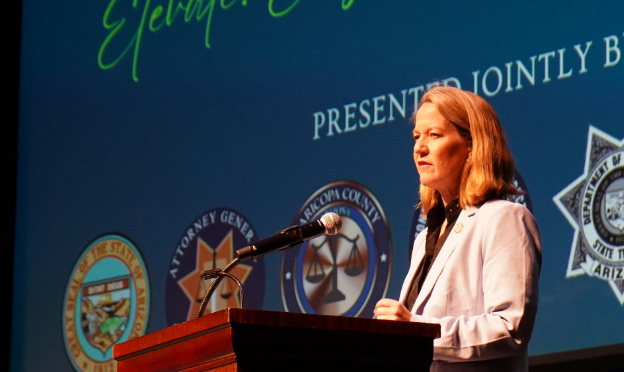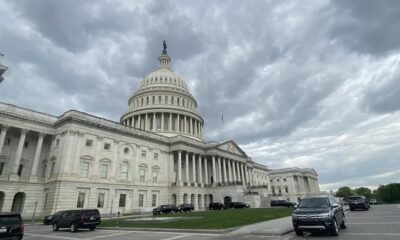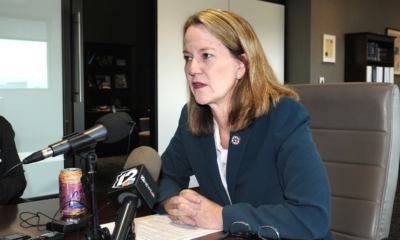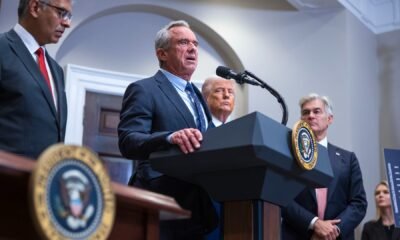Business
Mayes Struggles in Legal Battle Over Trump’s Controversial ‘Liberation Day’ Tariffs

By Matthew Holloway |
Arizona Attorney General Kris Mayes encountered a significant challenge last week regarding her legal battle against President Donald Trump’s ‘Liberation Day’ Tariffs. The U.S. Court of Appeals for the Federal Circuit ruled in favor of the President, allowing the contested tariffs to remain in effect while the case is under appeal.
The appeals court overruled a previous decision from the U.S. Court of International Trade, which had annulled the tariffs on May 28th in the case of State of Oregon, et al., v. Trump, et al. The court acknowledged that the tariffs raise “issues of exceptional importance” and moved to expedite the proceedings. Full arguments will be presented before the entire court on July 31st. The judges noted that “both sides have made substantial arguments on the merits,” indicating the complexity of the case.
In response to the ruling, President Trump declared on Truth Social that the appeals court decision validates the use of tariffs to protect U.S. interests. This comment highlights the ongoing debate surrounding the legal authority of such tariffs.
The initial ruling from May 28th came from two lawsuits: one initiated by the Liberty Justice Center on behalf of five American businesses reliant on imports, and another from a coalition of twelve states, including Arizona. Mayes has expressed concern, arguing that the President lacks the unilateral authority to impose tariffs.
She stated on social media, “I’m leading a coalition of attorneys general in urging the Court to step in and block the President’s reckless and unlawful tariff scheme before it does even more damage.”
White House spokesperson Kush Desai defended the legal standing of the tariffs, claiming they are necessary to combat trade deficits and drug trafficking issues. He welcomed the appeals court’s stay order and expressed confidence in prevailing in future court dealings.
The tariffs in question, announced on April 2nd, impose a minimum tariff of 10% on various goods, particularly from Europe, while applying higher tariffs, up to 49%, on imports from certain countries like Cambodia and China. Despite the ongoing legal battles, President Trump affirmed that China’s duties on U.S. goods would remain at 10% and hinted at a new trade agreement pending approval.
In his post on Truth Social, Trump detailed the impending agreement with China, emphasizing beneficial terms for both nations. The unresolved issues illustrate the intricate dynamics of U.S.-China trade relations and the ramifications of these tariffs on American businesses and consumers.
Matthew Holloway is a senior reporter for AZ Free News. Follow him on X for his latest stories or email tips to Matthew@azfreenews.com.

















